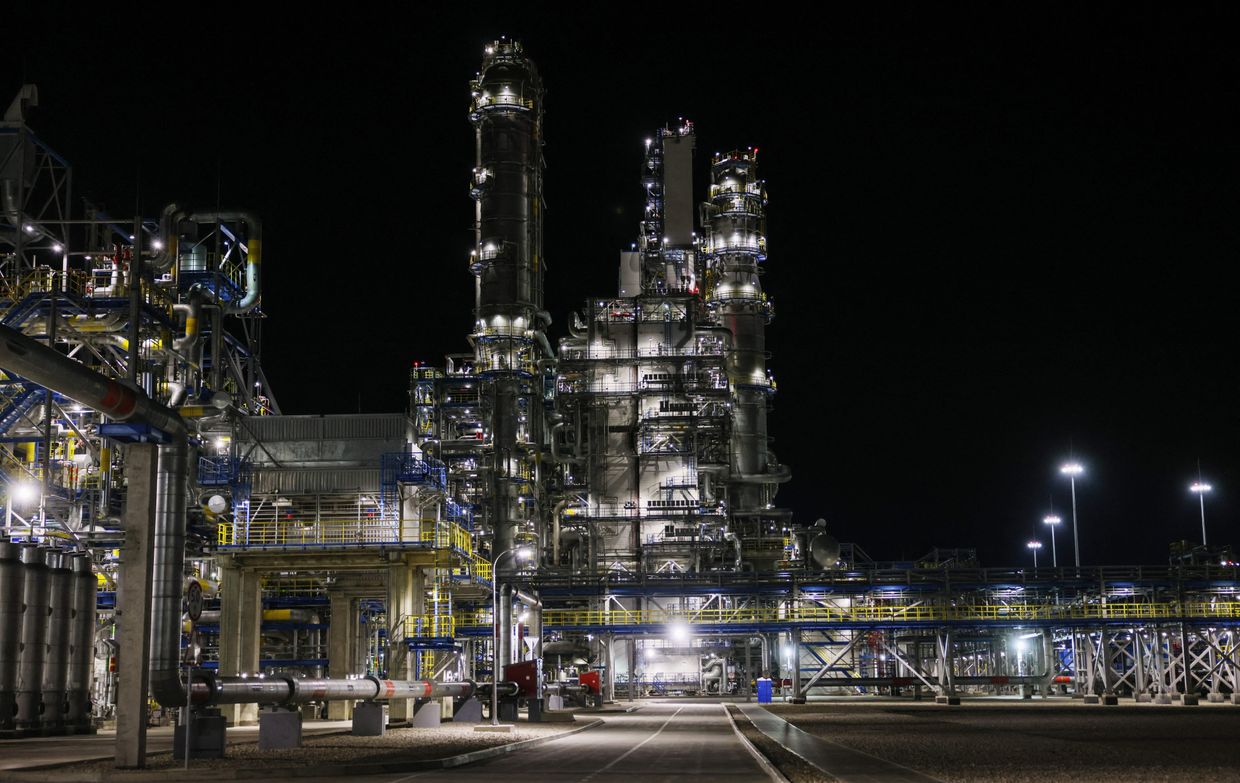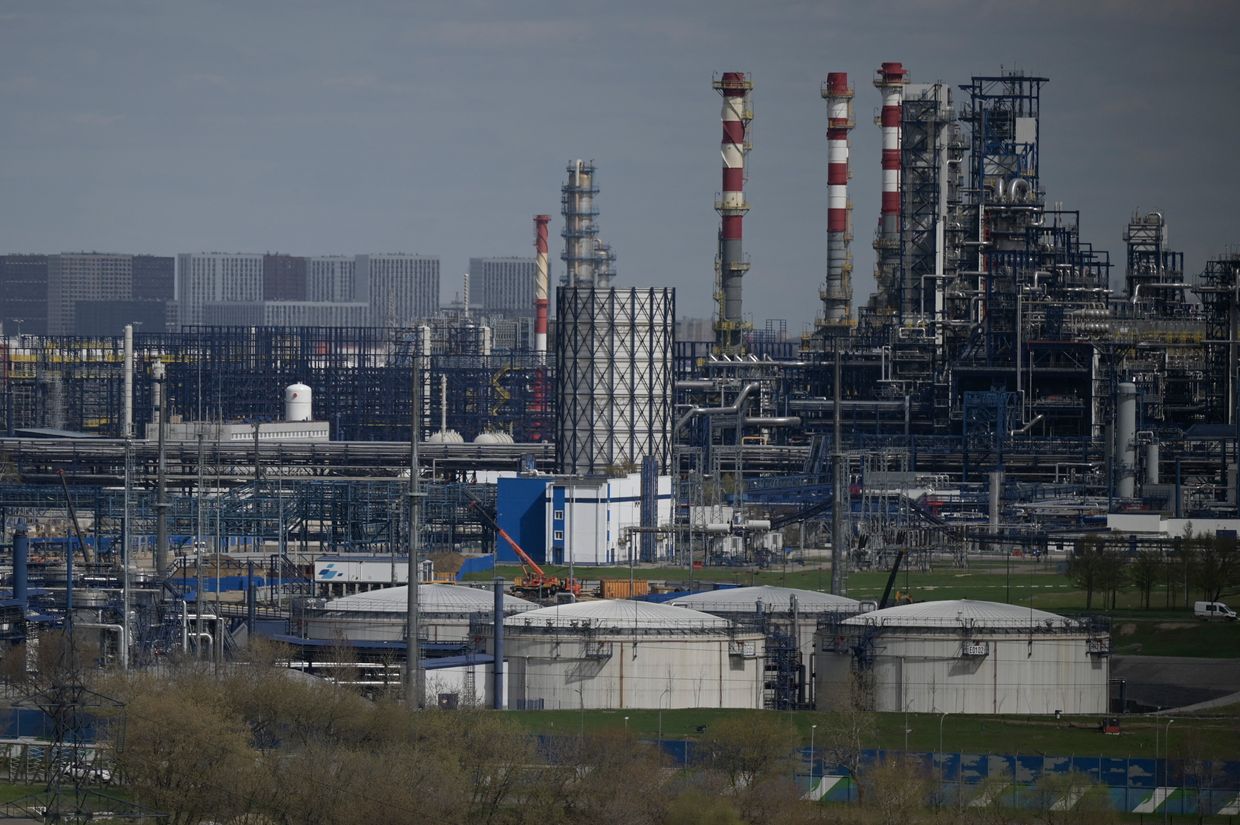As Russia cuts Transnistria from gas, stranded locals search for someone to blame

An employee of Tamara Cara delivers firewood to her home in Varniţa, Moldova, on Jan. 8, 2025. (The Kyiv Independent)
VARNIȚA, Moldova — The buzzing sound of chainsaws and generators is now common in Varnița, a village of 5,000 that borders Moldova's Russian-controlled region of Transnistria.
Located next to the Russian-controlled city of Bender (Tighina), the village is subordinated to Chișinău but depends on the neighbouring breakaway region for its energy infrastructure.
Workers from TiraspolTransGaz, the company managing the gas supply in Transnistria, go door-to-door to make sure the gas taps are switched off.
Gas storage in Russian-occupied region of Transnistria will last another 24 days after the halt of Russian supplies, local authorities said on Jan. 8.
Many of the 360,000 people in Transnistria have already had their gas, electricity, and water cut since the start of the year, following the end of Russian gas shipments through Ukraine and Moscow's decline to use alternative routes to maintain the region's energy supply intact.
"This is a security rather than an energy crisis," says Moldovan Prime Minister Dorin Recean, adding that Russia's aim is to influence the upcoming parliamentary elections set for the upcoming autumn.
Energy blackmail
The self-proclaimed authorities of Russian-controlled Transnistria never paid Gazprom for the gas they used, while Moscow was continuing to bill Moldova for it. Chișinău declined to pay.
Meanwhile, Transnistrian authorities used the gas to produce electricity in the Russian-owned Cuciurgan (Dnestrovsc) power station and sold the surplus to the unoccupied parts of the country cheaply.
Following Russia's decision to cut the supplies, and not use the TurkStream pipeline to ship gas to Moldova bypassing Ukraine, Transnistria has been facing blackouts, while in the rest of the country its energy bills have doubled.
Varnița, which is subordinated to the Moldovan capital Chișinău but is connected to the breakaway region's energy systems, had its gas switched off since New Year.
Following the gas cut, people were forced to switch to electric heaters, while planned blackouts of up to nine hours per day were introduced by Tiraspol authorities.

Vadim Krasnoselsky, the self-proclaimed president of Transnistria, accused Chișinău of strangling the region. Russian President Vladimir Putin's spokesman, Dmitry Peskov, also said Moldova and Ukraine were to blame for the energy crisis in Transnistria.
The Moldovan authorities say Russia has created the crisis in the region. According to Moldova's contract with Gazprom, which expires in 2026, Russia is responsible for securing the transit. The main option would be the use of the TurkStream and Trans-Balkan pipelines, connecting Russia with Moldova via Turkey, Bulgaria, and Romania.
The Moldovan authorities say Russia has created the crisis in the region.
Moldovan authorities say they also offered TiraspolTransGaz help to buy gas on the international market, just like the rest of Moldova has been doing since 2021 when Russia reduced its gas supply to the country.
The offer, however, was rejected by Tiraspol.
In a press conference following a visit to Varnița on Jan. 9, Moldovan President Maia Sandu said the government will equip public institutions in the villages of Varnița and Copanca, as well the rest of the area under Chișinău control that may be affected by the energy crisis, with biomass power plants, wood and pellets.
Sandu also mentioned her Jan. 8 phone call with President Volodymyr Zelensky, during which the two discussed Ukraine potentially selling coal to Transnistria to power the Cuciurgan plant.
"When we had a biomass heating system installed as part of a (European) project in our high school ten years ago, I thought it was a whim," Varnița Mayor Alexandr Nichitenco said.
"Now I can see it's useful; the children can go study unbothered," he said, adding that he has asked the government for more such projects.
In the long run, Varnița will be able to connect to the Chișinău gas and electric systems, but according to the mayor, the switch may take around nine months.
"It will be a different winter," he said.
People left behind
"Everyone is guilty except for the people," says 32-year-old Zarina, a shop assistant who lives in breakaway Bender (Tighina) but commutes to neighboring government-controlled Varnița for work.
The light is off in the cornershop she works in but clients come in unfazed to buy cakes and candies for the holiday season, ongoing until the old-style New Year or St Basil's Day celebrated on Jan. 14.
"For now, everything is ok," says Zarina, born during the 1992 war between Russia and Moldova, known as the Transnistria War.
Her flat in Bender (Tighina) is still connected to gas, electricity, and water. "But if worse comes to worst, we have grandparents living in the countryside with wood-burning stoves," she says. "I have been through this before. I was there when the electricity was frequently cut in villages in the 1990s," she adds.

A few streets away from the shop, retiree Ion Băieșu puts wood in a bucket to take it to the stove he has built himself to heat up two of three rooms in his house. Normally, he and his wife Ecaterina used to rely on gas to warm up, since it was so cheap. But since the cut, they have switched to making a fire twice a day.
"(Russians) have kept us hostages for 30 years," says Băieșu, who fought as a volunteer in the Russo-Moldovan war of 1992. "When you ask people' why do you vote for pro-Russian parties?' they respond — 'because of gas,'" says the 75-year-old.
"(Russians) have kept us hostages for 30 years."
"Don't you realize you're going to pay dearly for this at some point?" he goes on.
A few houses down the street, 49-year-old Oleg gathers his old wood fence panels in piles in the garden to have them ready to be used to warm up his home.
He says he has enough wood for the next four months. Working in a chicken factory, he worries about the potential rise of gas prices, blaming President Sandu's pro-European stance for the ongoing Russian-coined energy crisis and the soaring bills.
"Russians want to give us gas, but Ukrainians don't want to transmit it," he says.

Beyond wood-burning stoves, people have also bought air-conditioning and generators.
Tamara Cara, who together with her family runs a textile factory in Varnița, producing medical suits for export to Germany, has just bought generators — two for the factory and one for her house.
The 69-year-old employs 150 people, who mostly commute from Bender (Tighina).
She says she hasn't been able to enjoy the festive season and instead "was all nerves" because of the blackouts caused by the gas cut. She blames the Russians for it but has no hope that the situation would get sorted any time soon.
"At least we don't have war," Cara says, remembering how she hid in the basement in 1992 when her husband was fighting on the front line.

Prime Minister Recean has reiterated that the 2,000 illegally stationed Russian troops need to withdraw from Transnistria in order to let Chisinau manage its internationally recognized territory and solve the ongoing energy crisis caused by the occupying forces.
Nicolae, a cultural worker from Russian-occupied Grigoriopol who preferred to have his name changed to avoid persecution, says people's views depend on what media they consume.
"Some blame Chișinău, others blame Zelensky. There are others still who put the blame on Moscow," Nicolae says.
While he has satellite TV and follows the Moldovan public broadcaster and pro-European independent media, the majority have cable television, which runs three local Tiraspol-controlled channels, as well as Russian television, banned in the rest of Moldova since 2022.













